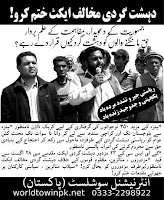Trade unions must join the fight against climate change

Ian Angus speaking at the Climate Change Social Change conference. Photo by Alex Bainbridge.
September 29, 2011 -- Climate and Capitalism, posted at Links International Journal of Socialist Renewal with permission -- Ian Angus, editor of Climate and Capitalism, is currently in Australia to speak at the Climate Change Social Change conference in Melbourne, September 30 – October 3.
During his pre-conference speaking tour, he was invited to address several meetings of trade union members. The following is a lightly edited transcript of the opening comments he made at union meetings in Melbourne and Geelong.
[For more articles by Ian Angus, click HERE.]
* * *
Thank you for inviting me to speak today.
Bolivia: Letter from mass Indigenous movement CONAIE to Evo Morales regarding TIPNIS controversy
The following letter was translated by Federico Fuentes. The translation first appeared on Bolivia Rising.
Camila Piñeiro Harnecker: Cooperatives and socialism in Cuba

September 26, 2011 -- First posted at Cuba's Socialist Renewal, posted at Links International Journal of Socialist Renewal with permission -- Cooperatives and Socialism: A Cuban Perspective is a new Cuban book, published in Spanish earlier this year. This important and timely compilation is edited by Camila Piñeiro Harnecker (pictured above). Avid readers of Cuba's Socialist Renewal will recall that I translated and posted a commentary by Camila, titled "Cuba Needs Changes" [also available at Links International Journal of Socialist Renewal], back in January. Camila lives in Cuba and has a degree in sustainable development from the University of Berkeley, California. She is a professor at the Centre for Studies on the Cuban

Protests at COP16 in Cancun, Mexico, December 2010. Protests are being organised to take place at COP17in Durban, November-December 2011.
Mauritius, Seychelles: Wikileaks exposes US imperialism's modus operandi

The Seychelles houses a base from where a fleet of “hunter-killer” drones operate.
(Updated Oct. 4) Bolivia: Avaaz, NGOs wrong on Morales and Amazon protests; police attack condemned

March in Trinidad, Bolivia, against a proposed highway that would go through part of the Amazon, August 15.
By Federico Fuentes
September 25, 2011 -- Green Left Weekly -- Statements, articles, letters and petitions have been circulating on the internet for the past month calling for an end to the "destruction of the Amazon". The target of these initiatives has not been transnational corporations or the powerful governments that back them, but the government of Bolivia's first Indigenous president, Evo Morales.
At the centre of the debate is the Bolivian government’s controversial proposal to build a highway through the Isiboro Secure National Park and Indigenous Territory (TIPNIS). TIPNIS, which covers more than 1 million hectares of forest, was granted Indigenous territory status by the Morales government in 2009. About 12,000 people from three different Indigenous groups live in 64 communities within TIPNIS.
Fred Magdoff and John Bellamy Foster: A `realistic’ answer to the ecological crisis

"What is clear from ...

